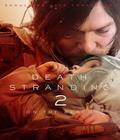
Genre: Edutainment
Publisher: Majesco
Developer: Kokolo
Release Date: December 9, 2008
 Here we go again with yet another "brain training" game on the Nintendo DS full of weird gimmicks and useless statistics. This time, the offender is Left Brain Right Brain 2, and the good news is that as far as pointless training games go, this one is pretty passable. Still, the title's lack of meaningful measurements or denotation of real progress means that its appeal will likely be very limited. Make no mistake, this game is still just a gimmick, albeit one that can at least be mildly entertaining at times.
Here we go again with yet another "brain training" game on the Nintendo DS full of weird gimmicks and useless statistics. This time, the offender is Left Brain Right Brain 2, and the good news is that as far as pointless training games go, this one is pretty passable. Still, the title's lack of meaningful measurements or denotation of real progress means that its appeal will likely be very limited. Make no mistake, this game is still just a gimmick, albeit one that can at least be mildly entertaining at times.
Every game of this ilk professes to measure some odd facet of the player's intelligence and skill, and Left Brain Right Brain 2 is no different. The game purports to measure and help improve ambidexterity, the ability to use both your dominant and weak hands with equal effectiveness. The way the game measures this is fairly simple and yet extremely reasonable, and in a way, it's amazing no one else has thought of it yet. Holding the DS like a book, the title asks you to play a quick mini-game using your dominant hand. Once you've completed the challenge, you then rotate the screen, put the stylus in the other hand and do the same challenge again in hopes of matching or bettering your dominant hand's score. The game assumes that if your "weak" hand can match your "strong" hand, then congratulations, you are perfectly ambidextrous in that particular facet of life.
The approach is novel, but there are a lot of flaws with this methodology. First off, it's easy to set a bad benchmark with your strong hand due to being unfamiliar with one of the games, catching a bad break or simply having an off performance. Thus, when you play with your other hand, it's very easy to beat the score you've set for yourself even if you have no right to do so. Indeed, in one of the mini-games, my right hand lasted for only one second while my left kept things going for well over a minute. When I got to the results screen, I was told simply that I had perfect ambidexterity and should move onto another game. If this had happened in reverse, with my weak hand trailing my strong one by that margin, I would have been upbraided for having extremely poor skills and told I needed to train much harder. The fact that it's so easy to skew the game to reward a poor performance as a good one makes it hard to take any claims seriously about the title actually helping with your dexterity skills.
The other major problem with the game's system of measuring ability is that it presents only the simplest of tasks. It's easy for me to tap or scribble at the screen with either hand, so how does this prove that my hands are at equal strength? Why not make me trace a line or write my name with both hands and tell me how well they compare then? For some reason, I get the feeling that if I had a stroke tomorrow and lost the usage of the right side of my body, I wouldn't be able to carry on as though nothing had happened simply because my left hand can tap crows or rub back and forth on a screen just as well as my right.
What Left Brain Right Brain 2 lacks in solid scientific measurement, it makes up for in game modes and other methods of distraction. Not only does the title feature a variety of single-player options, but it also supports multiplayer as well.
On the solo side, games are divided into Ambidexterity Check, Exercises and L v R. The first mode places you in a series of mini-games where you must first complete the event with your right hand, and then repeat the process with the left. At the end of all the events, the game tallies up your totals and presents your right and left hand (and theoretically brain, though no explanation is ever given as to why) balance. The driving force of this mode is the hope that you will see how your weak hand fares against your dominant one, engage in a bit of practice and then return later in order to try and better your overall score. It's a cute mode, but given the game's already questionable methods of measuring skill, it is ultimately meaningless and really just serves as a way to play a few games in a row if you don't want to be bothered with picking and choosing.
Exercises are where the meat of the game resides, and these quick events will give you plenty to do to keep your hands busy. The title features 20 mini-games spread over five difficulty levels, with objectives as diverse as tapping UFOs to destroy them to alternately tapping opposite sides of the screen to keep a series of planets balanced for as long as possible. Once again, each game pits your strong hand versus your weak one so every game will be played twice, but even with this provision, it's rare for any event to last over a total of two minutes. Ultimately, the exercises are quite entertaining and really lend a lot to the game's replay value.
L v R is a throwaway mode that really serves no purpose rather than providing filler. You first use your strong hand to guide a dog through a maze and then try and use your weak hand to beat your best time. This is roughly a 10-second experience, and there's absolutely no incentive to play this mode at all. Most gamers will likely attempt it once, realize how pointless it is and then move on to other things; there's really no reason to linger.
Aside from the games themselves, Left Brain Right Brain 2 features a calendar that lets you track your progress as well as the ability to allow you to update your "good hand" data at any time so you can have a more accurate benchmark to shoot for in the exercises. Both additions are welcome and if the game had a little more scientific grounding (or any grounding whatsoever), then they could likely be very helpful in determining how well you're improving.
Unfortunately, there is no reliable way to tell if Left Brain Right Brain 2 actually improves ambidexterity or stimulates brain growth in any way. To attempt and study such a thing would take months of meticulous training with tightly formatted rules, and even then, the evidence would only be anecdotal as the title only calculates your ability to tap and swipe at a screen.
In spite of all this though, Left Brain Right Brain 2 would likely be good for kids or anyone gullible enough to believe that it actually does what it's purported to do. The atmosphere of the title is light and fun, with amusing game situations (why is a dog looking for buried treasure in a maze filled with fireballs?) that will at least elicit a chuckle due to their sheer absurdity. Sure, it's another cheap knockoff game trying to capitalize on the overstuffed DS self-improvement market, but it's got a lot more heart than other games in the genre, and at times it is rather entertaining. It probably won't make you any more ambidextrous, but if you take the experience lightly, it will possibly make you laugh.
Score: 6.3/10
























